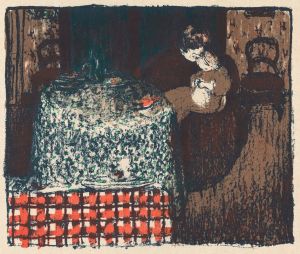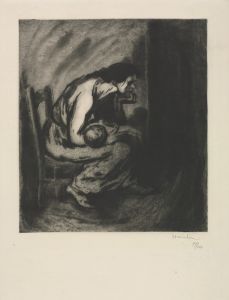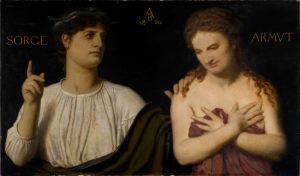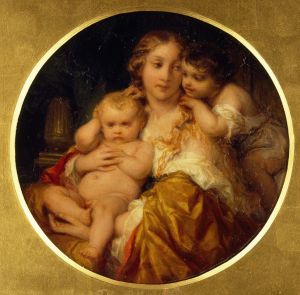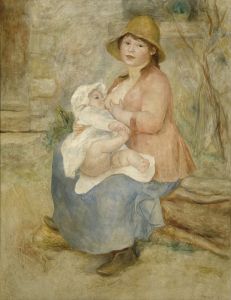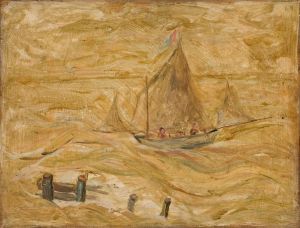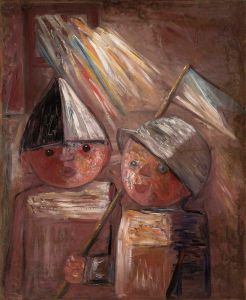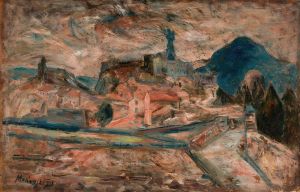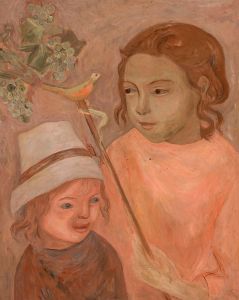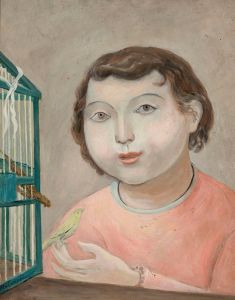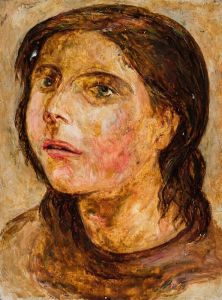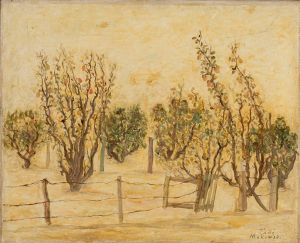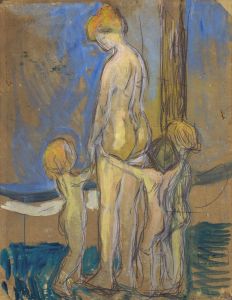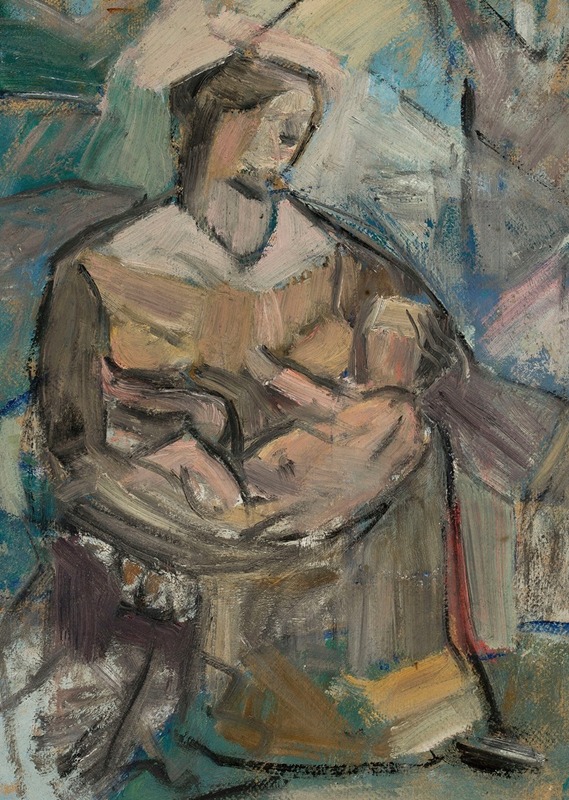
Maternity
A hand-painted replica of Tadeusz Makowski’s masterpiece Maternity, meticulously crafted by professional artists to capture the true essence of the original. Each piece is created with museum-quality canvas and rare mineral pigments, carefully painted by experienced artists with delicate brushstrokes and rich, layered colors to perfectly recreate the texture of the original artwork. Unlike machine-printed reproductions, this hand-painted version brings the painting to life, infused with the artist’s emotions and skill in every stroke. Whether for personal collection or home decoration, it instantly elevates the artistic atmosphere of any space.
Tadeusz Makowski was a Polish painter known for his unique style that combined elements of folk art, symbolism, and modernism. Born on January 29, 1882, in Oświęcim, Poland, Makowski initially studied classical philology at the Jagiellonian University in Kraków before turning to art. He later attended the Academy of Fine Arts in Kraków, where he studied under Józef Mehoffer and Jan Stanisławski. Makowski's early works were influenced by the Young Poland movement, which emphasized a return to folk traditions and national themes.
In 1908, Makowski moved to Paris, where he became part of the vibrant artistic community. The city was a hub for avant-garde artists, and Makowski was exposed to various modernist movements, including Cubism. His style evolved significantly during his time in Paris, as he began to incorporate elements of Cubism into his work while maintaining a strong connection to Polish folk art.
One of Makowski's notable works is "Maternity," a painting that reflects his distinctive style. Although specific details about the painting "Maternity" are limited, it is consistent with Makowski's broader body of work, which often depicted scenes of everyday life, children, and rural landscapes. His paintings are characterized by their simplicity, use of geometric forms, and a muted color palette, which together create a sense of nostalgia and innocence.
Makowski's work often featured children, and he had a particular talent for capturing their innocence and the simplicity of their world. This focus on childhood and simplicity can be seen in "Maternity," where the theme of motherhood is likely explored with tenderness and a sense of intimacy. Makowski's ability to convey emotion through minimalistic forms and subtle color variations is a hallmark of his style.
Throughout his career, Makowski remained somewhat detached from the mainstream art movements of his time, choosing instead to develop a personal style that was deeply rooted in his Polish heritage. His work is often described as having a poetic quality, with an emphasis on mood and atmosphere rather than detailed realism.
Makowski continued to live and work in France until his death on November 1, 1932. Despite spending much of his life abroad, his work remained deeply connected to Polish culture and traditions. Today, Makowski is regarded as one of Poland's most important modernist painters, and his works are held in various collections, including the National Museum in Warsaw and the Musée National d'Art Moderne in Paris.
While specific information about the painting "Maternity" is scarce, Tadeusz Makowski's broader oeuvre provides valuable insight into the themes and stylistic elements that likely characterize this work. His paintings continue to be celebrated for their unique blend of modernist techniques and traditional Polish motifs, capturing the essence of a bygone era with simplicity and grace.





